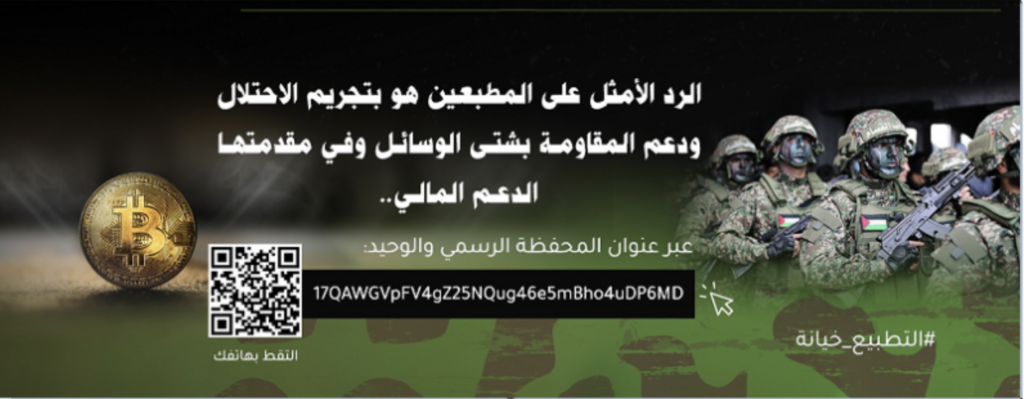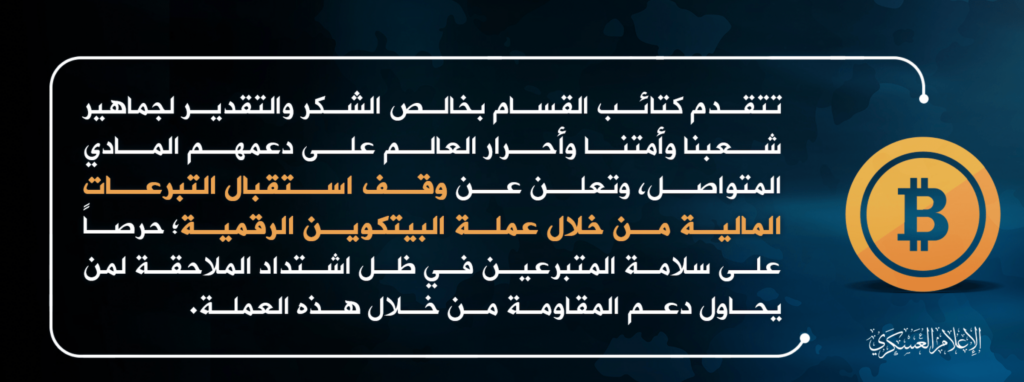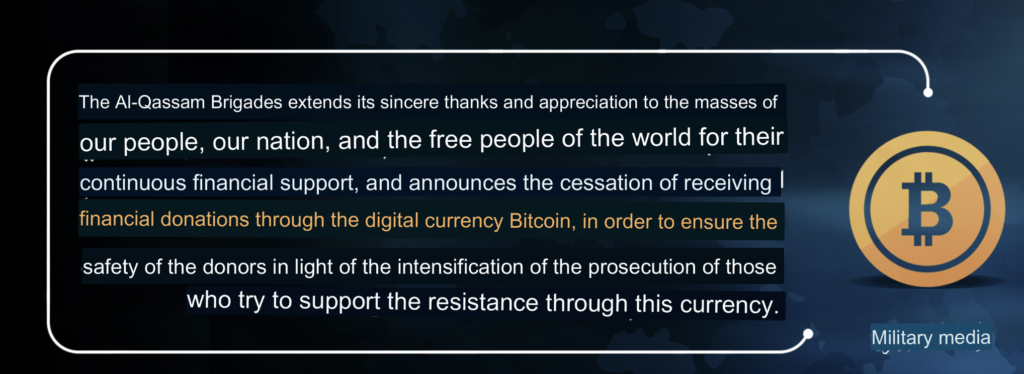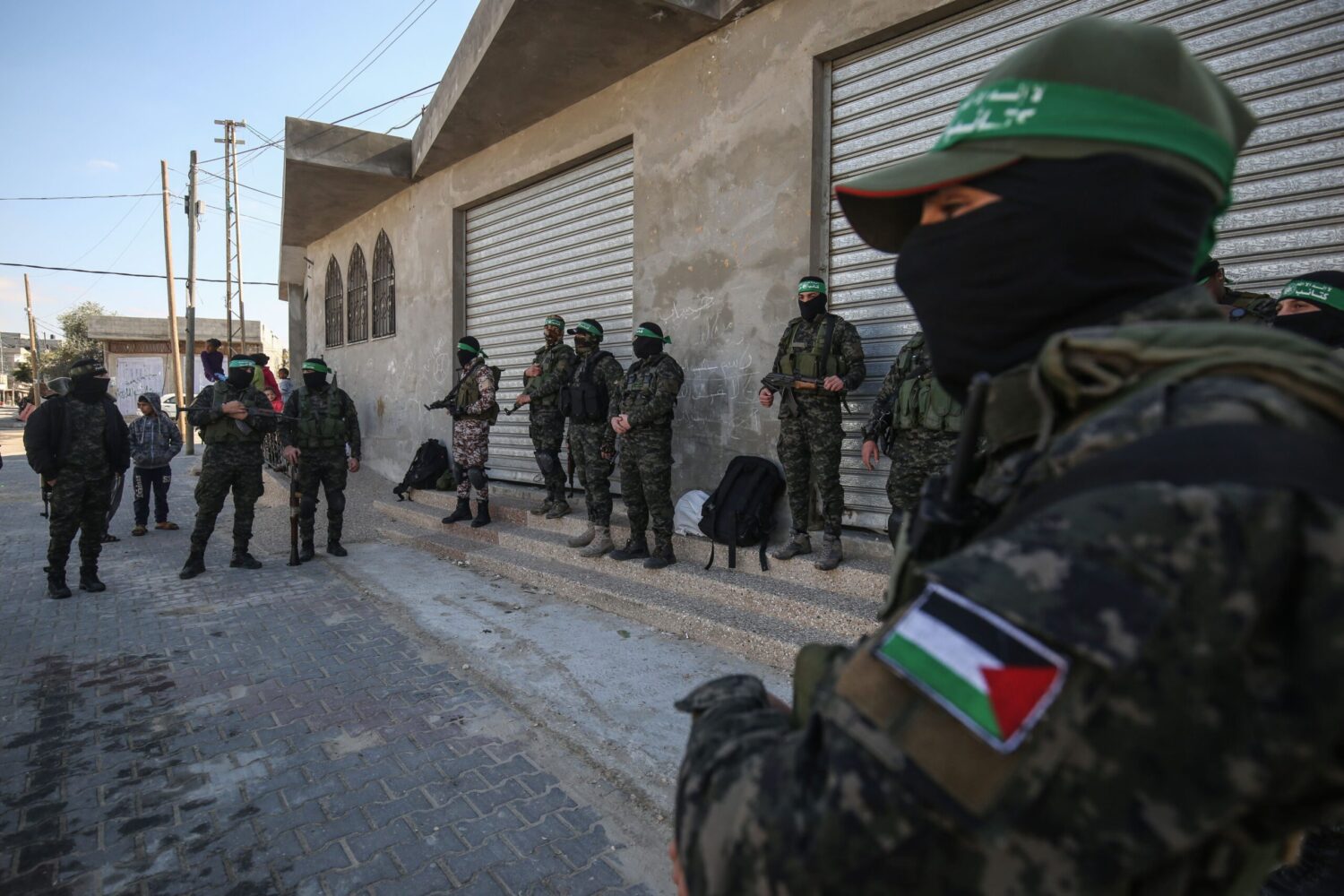Today, the Al-Qassam Brigades (AQB) announced the shutdown of their longstanding cryptocurrency donation program. AQB is the military wing of Hamas, and is designated as a terrorist organization by virtually all western countries for its attacks and military operations against Israel and its allies.
For years, AQB has used cryptocurrency donations as a means to raise funds while circumventing the traditional financial system, from which the organization is largely cut off. AQB has historically set up websites and social media campaigns to solicit these donations, providing specific donation addresses for sympathetic readers and even providing detailed instructions on how to acquire and send cryptocurrency without alerting authorities.

We’ve previously analyzed some of AQB’s cryptocurrency donation campaigns, finding that the group has raised tens of thousands of dollars’ worth of cryptocurrency through these efforts. Notably, AQB’s donation campaigns increased in sophistication over time in response to law enforcement pressure, beginning with simple, static addresses hosted at mainstream exchanges and eventually progressing to wallets that could generate unique addresses for each donor.
Today, however, AQB’s official website displayed a new message announcing the end of its crypto donation efforts, citing successful government efforts to identify and prosecute donors. You can see that post below, in both the original Arabic and an English translation.


AQB followed up with other communications inviting supporters to make donations through “other available methods.”
This news shows that AQB has learned the same lesson as many others seeking to use digital assets for illegal purposes: Cryptocurrency isn’t crime-friendly. Thanks to the transparency of blockchains, law enforcement can trace funds used for illicit activity and eventually connect them to real world people and entities — and the immutability of blockchains means that these investigations can take place any time, regardless of how long ago the crime took place, as the transactions’ evidence will be available forever.
AQB’s cryptocurrency donation campaigns specifically have been the target of multiple successful law enforcement efforts. In August 2020, for instance, U.S. authorities seized more than $1 million worth of cryptocurrency associated with AQB donations from an unlicensed cryptocurrency business in Gaza. In July 2021, following a surge in donations that coincided with Operation Guardian of the Walls earlier that year, Israeli authorities seized an undisclosed amount from several cryptocurrency wallets used by AQB, in a joint operation led by the Israel Security Agency (ISA), the National Bureau for Counter Terror Financing in the Israel Ministry of Defense, and the Israel Police. Since then, NBCTF has followed up with additional successful crypto seizures from AQB and other terrorist groups.
Actions like those are likely why AQB has now ceased the use of cryptocurrency to obtain illicit funding. This news represents a huge victory in the fight against crypto crime, and shows not only that illicit cryptocurrency transactions are possible to trace effectively, but also that agencies can raise the cost of illicit crypto use to such a degree that criminals are forced to give it up. We commend all of our government customers who have investigated AQB’s cryptocurrency activity in the past, and will continue working to ensure other terrorist organizations face similar difficulties.
This material is for informational purposes only, and is not intended to provide legal, tax, financial, or investment advice. Recipients should consult their own advisors before making these types of decisions. Chainalysis has no responsibility or liability for any decision made or any other acts or omissions in connection with Recipient’s use of this material.
Chainalysis does not guarantee or warrant the accuracy, completeness, timeliness, suitability or validity of the information in this report and will not be responsible for any claim attributable to errors, omissions, or other inaccuracies of any part of such material.
